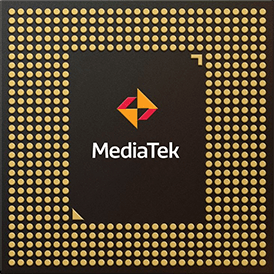
MediaTek Dimensity 8000 Benchmark, Test and specs
Last updated:
The MediaTek Dimensity 8000 has 8 cores with 8 threads and is based on the 3. gen of the Mediatek Dimensity series. The processor was released in Q1/2022. The MediaTek Dimensity 8000 scores 845 points in the Geekbench 5 single-core benchmark. In the Geekbench 5 multi-core benchmark, the result is 3,460 points.

| Name: | MediaTek Dimensity 8000 |
|---|---|
| Family: | Mediatek Dimensity (36) |
| CPU group: | MediaTek Dimensity 8000 (4) |
| Architecture: | Cortex-A78 / Cortex-A55 |
| Segment: | Mobile |
| Generation: | 3 |
| Predecessor: | -- |
| Successor: | -- |
CPU Cores and Base Frequency
The MediaTek Dimensity 8000 has 8 CPU cores and can calculate 8 threads in parallel. The clock frequency of the MediaTek Dimensity 8000 is 2.75 GHz. The number of CPU cores greatly affects the speed of the processor and is an important performance indicator.
| CPU Cores / Threads: | 8 / 8 |
|---|---|
| Core architecture: | hybrid (big.LITTLE) |
| A-Core: | 4x Cortex-A78 |
| B-Core: | 4x Cortex-A55 |
| Hyperthreading / SMT: | No |
|---|---|
| Overclocking: | No |
| A-Core Frequency: | 2.75 GHz |
| B-Core Frequency: | 2.00 GHz |
Internal Graphics
The MediaTek Dimensity 8000 has integrated graphics, called iGPU for short. Specifically, the MediaTek Dimensity 8000 uses the ARM Mali-G610 MP6, which has -- texture shaders and 6 execution units. The iGPU uses the system's main memory as graphics memory and sits on the processor's die.
| GPU name: | ARM Mali-G610 MP6 |
|---|---|
| GPU frequency: | |
| GPU (Turbo): | No turbo |
| Compute units: | 6 |
| Shader: | -- |
| Hardware Raytracing: | No |
| Release date: | Q2/2021 |
| Max. displays: | 1 |
|---|---|
| Generation: | Vallhall 3 |
| Direct X: | 12 |
| Technology: | 4 nm |
| Max. GPU Memory: | -- |
| Frame Generation: | No |
Hardware codec support
A photo or video codec that is accelerated in hardware can greatly accelerate the working speed of a processor and extend the battery life of notebooks or smartphones when playing videos.
| h265 / HEVC (8 bit): | Decode / Encode |
|---|---|
| h265 / HEVC (10 bit): | Decode / Encode |
| h264: | Decode / Encode |
| VP8: | Decode / Encode |
| VP9: | Decode / Encode |
| AV1: | Decode |
|---|---|
| AVC: | Decode / Encode |
| VC-1: | Decode / Encode |
| JPEG: | Decode / Encode |
Memory & PCIeThe processor can use up to 16 GB memory in 4 (Quad Channel) memory channels. The maximum memory bandwidth is 51.2 GB/s. The memory type as well as the amount of memory can greatly affect the speed of the system. |
|
| Memory type: | Memory bandwidth: |
|---|---|
| LPDDR5-6400 | 51.2 GB/s |
| Max. Memory: | 16 GB |
| Memory channels: | 4 (Quad Channel) |
| ECC: | No |
| PCIe: | |
| PCIe Bandwidth: | -- |
Thermal ManagementThe thermal design power (TDP for short) of the processor is . The TDP specifies the necessary cooling solution that is required to cool the processor sufficiently. The TDP usually gives a rough idea of the actual power consumption of the CPU. |
|
|---|---|
| TDP (PL1 / PBP): | |
| TDP (PL2): | -- |
| TDP up: | -- |
| TDP down: | -- |
| Tjunction max.: | -- |
Technical details
The MediaTek Dimensity 8000 is made in 5 nm. The smaller the manufacturing process of a CPU, the more modern and energy-efficient it is. Overall, the processor has 0.00 MB cache. A large cache can greatly speed up the processor's speed in some cases such as games.
| Technology: | 5 nm |
|---|---|
| Chip design: | Chiplet |
| Socket: | -- |
| L2-Cache: | -- |
| L3-Cache: | -- |
| AES-NI: | No |
| Operating systems: | Android |
| Virtualization: | None |
|---|---|
| Instruction set (ISA): | Armv8-A (64 bit) |
| ISA extensions: | -- |
| Release date: | Q1/2022 |
| Release price: | -- |
| Part Number: | MT6895 |
| Documents: | Technical data sheet |
Rate this processor
Benchmark results

The benchmark results for the MediaTek Dimensity 8000 have been carefully checked by us. We only publish benchmark results that have been created by us or that have been submitted by a visitor and then checked by a team member. All results are based on and fullfill our benchmark guidelines.
Geekbench 5, 64bit (Single-Core)
Geekbench 5 is a cross plattform benchmark that heavily uses the systems memory. A fast memory will push the result a lot. The single-core test only uses one CPU core, the amount of cores or hyperthreading ability doesn't count.

|
Intel Core i3-4350
2C 4T @ 3.60 GHz |
||

|
Intel Core i5-6440EQ
4C 4T @ 3.40 GHz |
||

|
Intel Core i7-6820HQ
4C 8T @ 3.60 GHz |
||
|
|
MediaTek Dimensity 8000
8C 8T @ 2.75 GHz |
||

|
Intel Celeron G5905T
2C 2T @ 3.30 GHz |
||

|
Qualcomm Snapdragon 865
8C 8T @ 2.84 GHz |
||

|
Intel Core i5-4400E
2C 4T @ 3.30 GHz |
||
Geekbench 5, 64bit (Multi-Core)
Geekbench 5 is a cross plattform benchmark that heavily uses the systems memory. A fast memory will push the result a lot. The multi-core test involves all CPU cores and taks a big advantage of hyperthreading.

|
Intel Core i3-1305U
5C 6T @ 1.60 GHz |
||

|
Intel Core i7-6820HK
4C 8T @ 3.20 GHz |
||

|
Intel Core i7-4870HQ
4C 8T @ 2.50 GHz |
||
|
|
MediaTek Dimensity 8000
8C 8T @ 2.75 GHz |
||

|
Intel Xeon E3-1265L v3
4C 8T @ 3.70 GHz |
||

|
Intel Core i7-4930MX
4C 8T @ 3.90 GHz |
||

|
Apple A13 Bionic
6C 6T @ 2.65 GHz |
||
AnTuTu 9 Benchmark
The AnTuTu 9 benchmark is very well suited to measuring the performance of a smartphone. AnTuTu 9 is quite heavy on 3D graphics and can now also use the "Metal" graphics interface. In AnTuTu, memory and UX (user experience) are also tested by simulating browser and app usage. AnTuTu version 9 can compare any ARM CPU running on Android or iOS. Devices may not be directly comparable when benchmarked on different operating systems.
In the AnTuTu 9 benchmark, the single-core performance of a processor is only slightly weighted. The rating is made up of the multi-core performance of the processor, the speed of the working memory, and the performance of the internal graphics.
In the AnTuTu 9 benchmark, the single-core performance of a processor is only slightly weighted. The rating is made up of the multi-core performance of the processor, the speed of the working memory, and the performance of the internal graphics.

|
Google Tensor G3
8C 8T @ 2.91 GHz |
||

|
Qualcomm Snapdragon 888+
8C 8T @ 3.00 GHz |
||

|
Apple A15 Bionic (5-GPU)
6C 6T @ 3.23 GHz |
||
|
|
MediaTek Dimensity 8000
8C 8T @ 2.75 GHz |
||

|
Qualcomm Snapdragon 888
8C 8T @ 2.84 GHz |
||

|
MediaTek Dimensity 8100
8C 8T @ 2.85 GHz |
||

|
Apple A15 Bionic (4-GPU)
6C 6T @ 3.23 GHz |
||
Estimated results for PassMark CPU Mark
Some of the CPUs listed below have been benchmarked by CPU-monkey. However the majority of CPUs have not been tested and the results have been estimated by a CPU-monkey’s secret proprietary formula. As such they do not accurately reflect the actual Passmark CPU mark values and are not endorsed by PassMark Software Pty Ltd.

|
Intel Core i7-5775C
4C 8T @ 3.50 GHz |
||

|
Intel Core i5-8257U
4C 8T @ 3.20 GHz |
||

|
Intel Xeon E-2224G
4C 4T @ 4.30 GHz |
||
|
|
MediaTek Dimensity 8000
8C 8T @ 2.75 GHz |
||

|
MediaTek Dimensity 9000
8C 8T @ 3.05 GHz |
||

|
Intel Xeon E3-1271 v3
4C 8T @ 3.60 GHz |
||

|
Intel Core i7-7700T
4C 8T @ 3.60 GHz |
||
Benchmarks

Geekbench 5 (SC)
2,488 entries
2,488 entries

Geekbench 5 (MC)
2,461 entries
2,461 entries

AnTuTu 9 Benchmark
90 entries
90 entries

PassMark CPU-Mark
2,392 entries
2,392 entries
Popular comparisons
back to index




